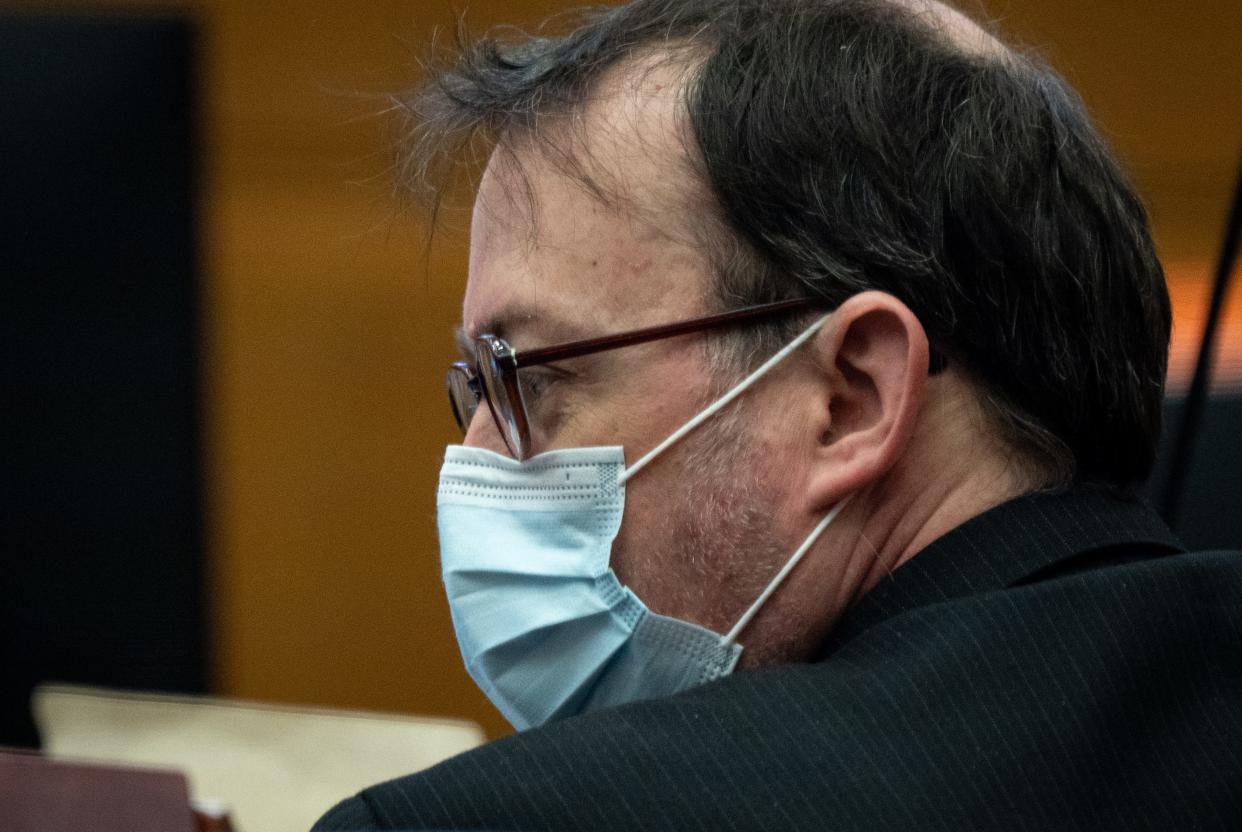Canal killings trial: Bryan Miller's attorney asks for mercy as sentencing nears

If Bryan Miller, who murdered two young women in Phoenix 30 years ago, had experienced a completely different childhood, where would he be today?
That was the question put forward in court Wednesday by defense attorney Richard Parker as he argued that Miller's life should be spared.
The state is seeking a death sentence for Miller for the brutal murders of Angela Brosso and Melanie Bernas, killed as they cycled along Phoenix canals in the early 1990s.
Parker told Judge Suzanne Cohen, who will decide Miller's sentence, that he did not envy her task.
"I know for certain one thing, though," he said. "That you do not have to kill Bryan in order to see justice done."
Parker displayed pictures of Miller, now 50, as a child as he urged the judge to consider Miller's upbringing with his mother, Ellen, a relationship the defense has characterized as abusive, damaging and sexually inappropriate.
"Where would Brian be now if he had a mother who nurtured him, who gave him hugs and showed him affection, who kissed him with love in her heart?" Parker asked.
"Instead of a mother who withheld affection, instead of a mother who treated him like an inmate rather than a child in his own home, always giving him orders?"
Where would he be if his mother had created a safe, and not unpredictable, living environment, Parker asked. If she had spoken to him with empathy instead of telling him she wished she had an abortion? If she had not shown him pornography as a child, or called his grade school classmates "sluts" and "whores," or threatened to cut off his penis?
If the answer to any of those questions was not here in this courtroom, Parker said, "then Your Honor should choose life."
A 'matter of mercy'
He told Cohen the task facing her was not a legal decision, but "a decision of the heart."
"I know there is room in your heart for mercy," he said. "I know that when I speak about mercy, I am not asking the court to excuse Bryan's actions."
On Nov. 8, 1992, Miller attacked and killed Brosso after she left her apartment by Cactus Road and Interstate 17 for a short evening bike ride. Her boyfriend stayed home to bake a cake for her 22nd birthday the next day.
When she didn't return home, her boyfriend went out searching and later raised the alarm with police.
Brosso was found the next morning, lying dead in a field just east of the apartment complex, her head missing and her torso so cut up that she was almost severed in half. Her head was found 11 days later in the Arizona Canal.
On Sept. 22, 1993, the body of Melanie Bernas, a 17-year-old high school student, was found in the canal close to Metrocenter. She had died from the same fatal stab wound to the back as Brosso, and had cuts to her chest and across her neck.
Brosso and Bernas were not only murdered and mutilated, but also sexually assaulted as or after they died.
DNA evidence from vaginal swabs suggested the same man was responsible for both attacks. But with no suspect to match the sample to, the case ran cold for decades.
For subscribers: In canal killings, DNA technology gave them the break they needed
In 2015, Miller was arrested after fresh forensic analysis led police to covertly obtain his DNA and found it was a match.
He pleaded not guilty for reasons of insanity, but was found guilty by Cohen last month.
In a brief statement to the court Monday, Miller said he accepted the verdict but he did not apologize for killing Brosso and Bernas.
"I wish I could provide answers to the questions you have," he said.
Parker said extending mercy to Miller could be difficult, given the "horrendous and atrocious" nature of his crimes. But he told Cohen that she had to regard Miller as an individual, even if his actions were considered "the worst of the worst."
'We should not kill broken people'
The defense attorney pointed to an array of factors he said were grounds for a life sentence.
Miller's deprived childhood. The psychological disorders he developed from that trauma. The fact he was 20 at the time of the murders, his brain not yet fully developed. His autism spectrum disorder and emotional immaturity. The bonds he has with people in the community. The fact that he loves his daughter.
Parker described Miller as "broken," unable to bear the weight of the trauma his mother had dumped on him. Killing Miller, Parker said, would say his experiences have no meaning.
"We should not kill broken people," he said. "We should work to rebuild them."
He argued a life sentence was a harsh, appropriate and just fate for Miller.
"He will never leave the confines of a prison and a prison cell. Every day is going to be marked by the same routine. He will have no choice over that routine," Parker said.
Lori Vallow Daybell: Idaho mom convicted in deaths of 2 kids and romantic rival faces new Arizona charge
"He will be in a room the size of one of our bathrooms. He has a 2-inch mat. It will be concrete floor, cement walls. It will be the same visuals every single day for the rest of his life."
He returned over and over to the concept of humanity, reiterating that Miller has it, and his life has value.
"Remember that mercy, Judge, is not a weakness," Parker said. "It is a strength."
The state will present its closing statements Thursday. Miller's sentence is not expected to be handed down before early June.
This article originally appeared on Arizona Republic: Canal killings trial: Bryan Miller's attorney asks for mercy

